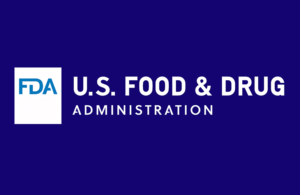 The FDA today announced a proposed rule that would make it explicit that in vitro diagnostics are medical devices under the Federal Food, Drug, and Cosmetic Act, including when the manufacturer of the IVD is a laboratory.
The FDA today announced a proposed rule that would make it explicit that in vitro diagnostics are medical devices under the Federal Food, Drug, and Cosmetic Act, including when the manufacturer of the IVD is a laboratory.
The agency is publishing the full rule proposal in the Federal Register.
“A growing number of clinical diagnostic tests are being offered as laboratory-developed tests without assurance that they work. The stakes are getting higher as these tests are increasingly being used to drive treatment decisions,” FDA Commissioner Dr. Robert M. Califf said in a news release. “According to the Centers for Disease Control and Prevention, 70% of today’s medical decisions depend on laboratory test results. Given the role these tests play in modern medical care, their accuracy and validity have a significant impact on public health.”
The move marks a break from decades of more hands-off regulation. Historically, FDA officials did not want to put extra burdens on hospital labs, where many of the lab-developed tests (LDTs) used to be based. However, the situation has changed in the 21st century as the Internet and the relative ease of mailing test samples enabled centralized labs to conduct prenatal screenings and much more for large numbers of people.
The highly publicized fraud at the now-defunct blood-testing company Theranos helped raise awareness about the need to regulate LDTs better; the company’s founder, Elizabeth Holmes, is presently serving an 11-year sentence in federal prison. A ProPublica investigation published in late 2022 described prenatal tests as an unregulated “Wild West.”
The FDA is proposing a phase-out of its general enforcement discretion approach for most LDTs. After the phase-out period, the FDA would expect IVD makers to meet applicable requirements, except in cases where they are able to leverage regulations that they are following under the Centers for Medicare and Medicaid Services’ Clinical Laboratory Improvement Amendment.
FDA officials are also seeking public input on some alternative enforcement approaches to prevent the boosted regulation from hindering public health efforts. For example, the FDA might take a different approach toward academic medical center laboratories. Another idea is continuing the present general enforcement discretion approach for some or all currently marketed LDTs. The FDA is also considering a phaseout period tailored for small laboratories and leveraging programs such as the New York State Department of Health Clinical Laboratory Evaluation Program or those within the Veterans Health Administration when appropriate.
In addition, the FDA would facilitate increased use of the agency’s Third Party Review program.
How the industry is reacting to the FDA’s lab-developed tests proposal
The FDA gave up on a previous effort in the 2010s to boost regulation after it faced tough opposition from the lab-based testing industry and professional associations.
The Association for Molecular Pathology, for example, has argued for reform of the CMS’s Clinical Laboratory Improvement Amendments, leaving out the FDA.
The American Clinical Laboratory Association today repeated its long-held position that the FDA does not have the statutory authority to regulate LDTs as medical devices — and that the FDA needs to work with Congress on new rules. The ACLA said in its statement: “Pursuing a significant change in the regulatory framework without congressional authorization does not benefit patients and risks FDA falling behind on its current public health priorities.”
AdvaMed CEO Scott Whitaker noted that Congress last year nearly passed the bipartisan VALID Act to overhaul the regulation of diagnostics. “AdvaMed has been actively engaged in that effort because regulation of clinical diagnostics has not kept pace with advancements in the field, including those driving personalized medicine. We are evaluating FDA’s proposed rule, and we continue to urge Congress to adopt a modernized regulatory framework for diagnostics so that patients across the country have access to the best possible diagnostic tests.”
Zach Rothstein, executive director of AdvaMedDx, said AdvaMed wants to see FDA overseeing a single, modernized, diagnostics-specific, risk-based regulatory framework for all in vitro clinical tests (IVCTs), regardless of where they are developed. “Such a framework would increase the reach of cutting-edge diagnostics, allowing patients to benefit more rapidly and broadly, and increase the confidence of patients and providers in the latest diagnostic technologies. “


